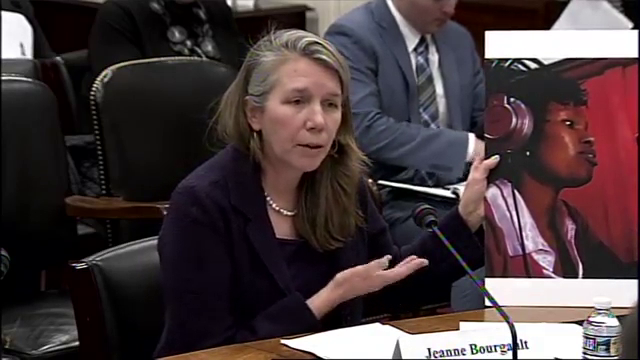On March 12, Internews President and CEO Jeanne Bourgault testified before the Congressional Subcommittee on State, Foreign Operations and Related Programs on the importance of citizen access to trusted, quality, and locally relevant news and information.
Internews was grateful for the opportunity to present to the Congressional Subcommittee on State, Foreign Operations and Related Programs. Bourgault called on the committee to continue to invest in independent media and internet freedom programs.
She highlighted the role of women in media, saying, “When people feel that their issues are covered, and their voices are heard, trust can flourish. With only 24% of people seen heard and read about in the media are women, we pay special attention to engaging women in media in every country around the world.”
Watch Bourgault’s testimony.
Transcript of the testimony summary presented before the committee:
STATEMENT BY JEANNE BOURGAULT
PRESIDENT AND CHIEF EXECUTIVE OFFICER
INTERNEWS
SUBCOMMITTEE ON STATE, FOREIGN OPERATIONS,
AND RELATED PROGRAMS
COMMITTEE ON APPROPRIATIONS
U.S. HOUSE OF REPRESENTATIVES
MARCH 12, 2019
Madam Chairwoman, I am very honored to appear today on behalf of Internews, an international non-profit dedicated to supporting local media around the world.
I appreciate the opportunity to testify today on the urgent crisis facing citizen access to trusted, news and information, and I will start with a devastating number: 13%. At this point in history, only 13% of the world’s population lives in a country deemed to have a free press.
The causes are several-fold: 1) authoritarian governments are directly restricting access to information; 2) intimidation & attacks are making it harder for journalists to do their jobs; 3) the rise of malign actors and the swiftness of the internet have made misinformation ever more pernicious; and 4) finally, market realities have made the business of local news nearly untenable.
What this means is…
- In Mexico and Guatemala, violence against journalists from criminal groups is equivalent to them working in a war zone;
- In Burma, hate speech, rapidly spread on social media sites, flamed the Rohingya crisis, directly contributing to the devastating genocide there.
- And all over the world, from Cameroon to India, direct government censorship has taken a new path — full internet shutdowns that completely cut off access to information.
The need for action is urgent.
And Internews is taking action. We are building the capacity of partners in these countries – local media, content producers, and digital activists – to fight these trends.
I’d like to share several strategies that work:
- First, focusing on inclusion helps build trust. When people feel that their issues are covered, and their voices are heard, trust can flourish. With only 24% of people seen heard and read about in the media are women, we pay special attention to engaging women in media in every country around the world (show Kenya);
- Second, progress can be made to improve Freedom of Expression, as demonstrated recently in Liberia, where the government recently passed a hard-fought media law to decriminalize libel.
- Third, to survive in a volatile markets, we must nurture the business skills of our media partners. We want the critical local news outlets to thrive, like our partner in Montenegro, whose online digital advertising revenues grew four-fold following consultancy help to improve their digital ad systems.
- Finally, investing in critical thinking can make a difference. In Ukraine, a combination of fact-checking sites, contests and integrating media literacy into social science disciplines, the country has seen a 16% year-over-year increase in Ukrainians’ ability to spot fake news.
The bottom line is at Internews, we believe the most important tool in combating fake news is to invest in real news.
Last year I visited Kabul, where Internews has been working with USAID support since early 2002. When we first arrived, Afghanistan was a near complete information desert, with only one creaky, state-run radio station. We started working in communities that had never experienced their own media. We found media enthusiasts and helped them to create a whole new network of radio and TV stations that now reach all 34 provinces of Afghanistan.
Seventeen of these stations are women-led, and I am most proud of our ability to support these brave and courageous Afghan women.
Because of the hard work of Afghanistan’s home-grown journalists, media has become the second most trusted public institution in the country.
This kind of change does not happen overnight, and is only possible through deep partnership with USAID, the US Department of State, and legislators like you on this Committee. I urge you to include language in the Committee’s fiscal year 2020 report supporting continued funding for media and civil society programs around the world.
Thank you.

